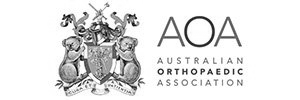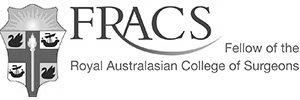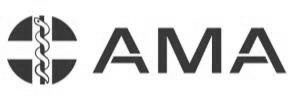Your First Visit
Booking Your First Visit
Our doctors consult at a number of locations. To book an initial consultation please either
- Phone our rooms at telephone, or
- Book Here
Urgent Appointments
Advise the staff if the matter is urgent and we will endeavour to arrange an expedited appointment.
Plan With Notes
It’s easy to forget all the questions you wish to discuss once in front of the doctor. We recommend you prepare a list of questions you want to discuss.
Referral Information
Anyone can make an appointment to see our doctors.
Valid Referral
With a valid specialist referral, you will receive a Medicare rebate The referral must be current and come from general practitioner or another specialist.
No Valid Referral
Without a valid referral, you will not obtain your Medicare rebate and be required to pay the full consulting fee.
You can make an appointment and then arrange for your general practitioner to fax through a referral prior to your appointment date.
What to Bring To Your First Visit
Please plan your appointment appropriately or reschedule if necessary.
Prepare to arrive 15 minutes before your allocated appointment time as you will be asked to complete some paperwork.
Bring all relevant information as listed below:
Clinical
- List of Current Medications,
- List of any allergies to pharmaceuticals or other,
- Prior X Rays, MRI or CT scans
- Copies of Pathology Reports
- Your Medical and Family History
- Is the problem work related?
Identity
- Referral Letter (GP, Doctor or Physio)
- Drivers license or valid ID
- Medicare, DVA or Pension Card
- Private Hospital Insurance Details
- Employer’s Letter (if WorkCover) and a current claim and approval from their case manager
Other
- Current Diet and Exercise
- Relevant Journal or Travel Plans
Prepare a list of questions you want to ask your doctor about your problem or concerns. It’s easy to forget what you wanted to discuss once you are at the appointment.
During Your First Visit
You should expect to be greeted at reception upon arrival and then seen by the doctor.
Medical History
During your first visit you and the doctor will discuss:
- General health and Medications,
- Previous problems,
- Family history,
- Current symptoms and related health,
- Previous diagnostic imaging, and
- Risk factors, lifestyle and family history
Honesty is important as it provides all the information needed to assess and properly treat you.
Physical Examination
It is important to be as relaxed as possible during any examination. Try taking deep slow breaths, relax and think of something pleasant can help if the doctor needs to perform a clinical examination here..
Diagnostic Imaging
You may require more diagnostic testing to confirm the doctors diagnosis.
Ask Questions?
We want you to feel free to discuss openly any questions or voice any concerns you may have without reluctance or hesitation, as anything dealing with your health is of extreme importance.
It is important that you clearly understand your options.
Appointment Policy
Your time is valuable. Our Surgeons endeavour to run on schedule and your punctual attendance will assist this.
Feel free to ring us 30 minutes prior to your appointment to confirm if your we are running on time.
Late Arrivals
We do understand that circumstances may arise unexpectedly, however, late arrivals can compromise the service we are able to provide to you, and can also inconvenience other patients.
We will do our best to accommodate late arrivals, but in some instances, appointments may need to be rescheduled.
Cancellation Policy
We do ask that you contact us and give at least 24 hours notice should you need to reschedule or cancel your booking.
After Your First Visit
Diagnosis and Recommendations
After reviewing any diagnostic results, [DOCTOR] will recommend appropriate treatment.
Treatment
Where a Treatment Option is recommended you may need to understand and consider the following:
- Further preoperative medical evaluations to determine suitability for the procedure,
- Further diagnostic evaluations including pathology and imaging,
- Potential risks and complications
- Planning and recovery time
- Counselling to ensure that the informed consent obtained is fully understood.
Be Aware of
- Any infections prior to surgery, as they may delay a procedure until the infection is cleared,
- Any tooth, gum, bladder or bowel problems to reduce complications,
- Anti-inflammatory medications (NSAIDs) or other medications that may need to be paused,
- Stop smoking to reduce your surgery risks and improve recovery
- Consider losing weight (if overweight)
If you have any specific concerns or fears regarding your condition or treatment we recommend contacting the practice for clarification.





